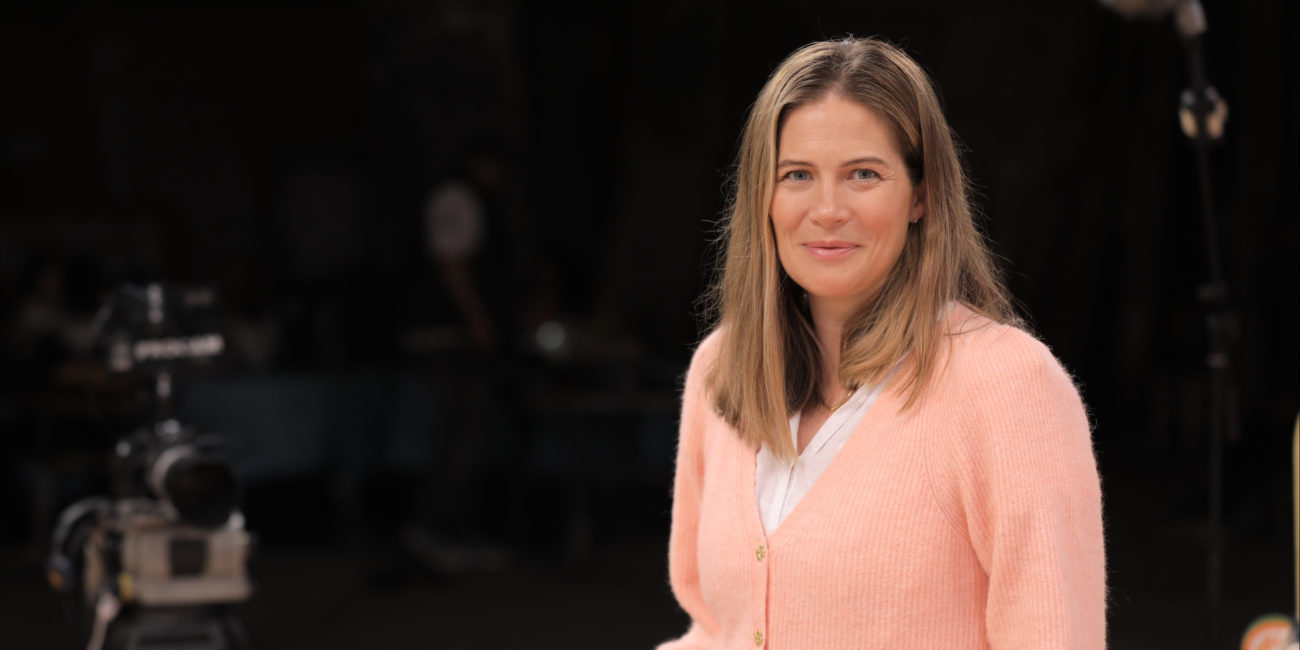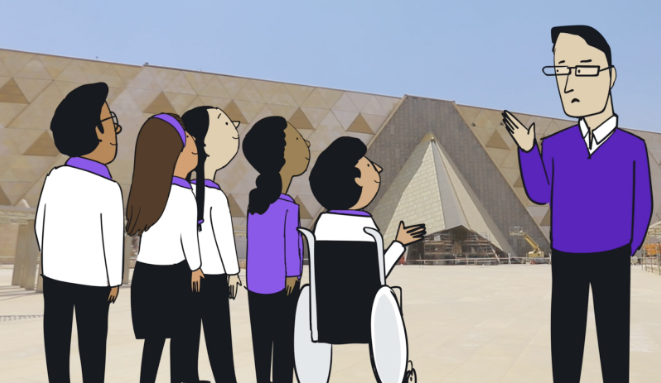You have just directed a film “Woman in the Middle,” about intergenerational family anxiety as part of an Open University psychology module. Can you tell more about the storyline?
The film has June at the centre and is from a woman’s perspective, about how she both supports and suffers anxiety within the family. In addition, she supports her father, Danny, during the onset of her mother’s dementia, plus her daughter who is a school refuser and her husband who is having issues at work.
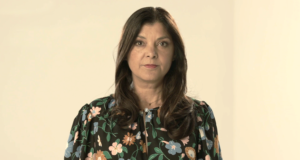
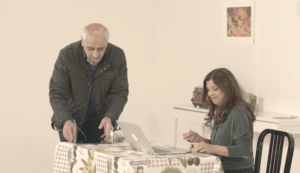
How did you go about hitting all the learning outcomes for the students?
At Hamlett Films we put the academic at the centre of the filmmaking process. This ensures the exact learning outcomes are met and that we facilitate the production of the very best piece of AV content to meet the academic’s needs for their learners.
Were there any particular challenges when creating this film, and how did you navigate these? And any standout moments of excitement/ success?
Creating the non verbal communication that illustrates the emotion of a situation is very important. Having Danny painting his dementia partner’s nails is a powerful way of communicating their predicament and I found something very moving in the idea that a man of Danny’s generation would consider trying to paint his wife’s nails to try to reach her.

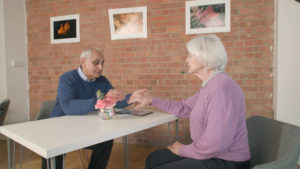
We needed to show not only how June holds the family together, but also how she suffers as well. It’s a really contemporary look at women working while supporting others.
Fulfilling the Open University’s brief of having a multi generational and multi ethnic cast who were not from the South of England was also a challenge, but the experience and doggedness of Hamlett Films casting department found the ideal candidates.
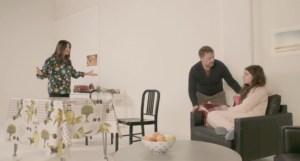
What did you learn from working on this project?
As a writer/director it’s important to allow your characters to take on a life of their own, ideas and additions from the actors or other members of the crew can add that bit of extra magic.
I had some knowledge of school refusers and mid life crises but the most thought provoking question the dramas raise for me is how we treat elderly people when one partner needs care.
I had never really thought about the fact that couples get separated, and whether that is healthy for them. June is the mother, wife and daughter coping with all these life situations – which are not unusual – and there’s no real help or support.
When creating drama films about highly emotive subject matters, how do you go about researching and writing your scripts to ensure the topic is treated with the sensitivity and care it deserves?
For educational films it’s important to understand the content, context and educational aspirations of the dramas, and I do a lot of my own research to really delve into the situation being portrayed. I also create a background for each character to explain how they got to the moment explored in the film. So researching case studies really helps bring the characters to life. And I borrow my own or friends’ similar experiences and how they responded and managed in similar situations.
The films were for an audience of university students. How did that shape the films you produced?
The films present a snapshot of a few moments in a situation, and they raise questions rather than provide answers. I’m always trying to understand what happens after the students have watched the films – what is the purpose of them watching this film, if it’s to prompt discussion then what are they going to discuss? I also want to anticipate some of the obvious questions – e.g. is Lily being bullied at school and that’s why she’s refusing to go? It would appear not. Is Dave’s backache because he hurt himself and he’s getting older, or because he’s depressed and negative and it’s a physical manifestation of his mental health? So the films are shaped to provoke thought and further investigation.
This is such an important topic. What do you think film, as a medium, brings to this topic and topics like this?
Seeing the characters in a film as opposed to just reading about them in a text book, humanises them and allows the students to understand that these are ordinary people dealing with problems that are common to many families. As a female writer/director I want the students to be able to relate to the characters and empathise, rather than set them apart, so it’s not only creating the characters but also the details of their actions that put flesh on the bones. June, the mum, wife and daughter at the centre of these films is dealing with major life issues, and she’s also clearing the coffee cups and filling the fruit bowl!

How did being a female writer/director influence how you handled the project?
The brief was for three separate mini dramas, each dealing with a different family challenge, but as the project evolved I realised the person at the centre of them all is June, and although none of the issues are hers, she’s the person who has to deal with them. I empathise with her and her “can do” attitude – especially when dealing with her disaffected husband. As a woman I understand her need to try to make everything alright and to solve all the problems and it made sense for the 3 dramas to be linked into one around June being the Woman in the Middle.



